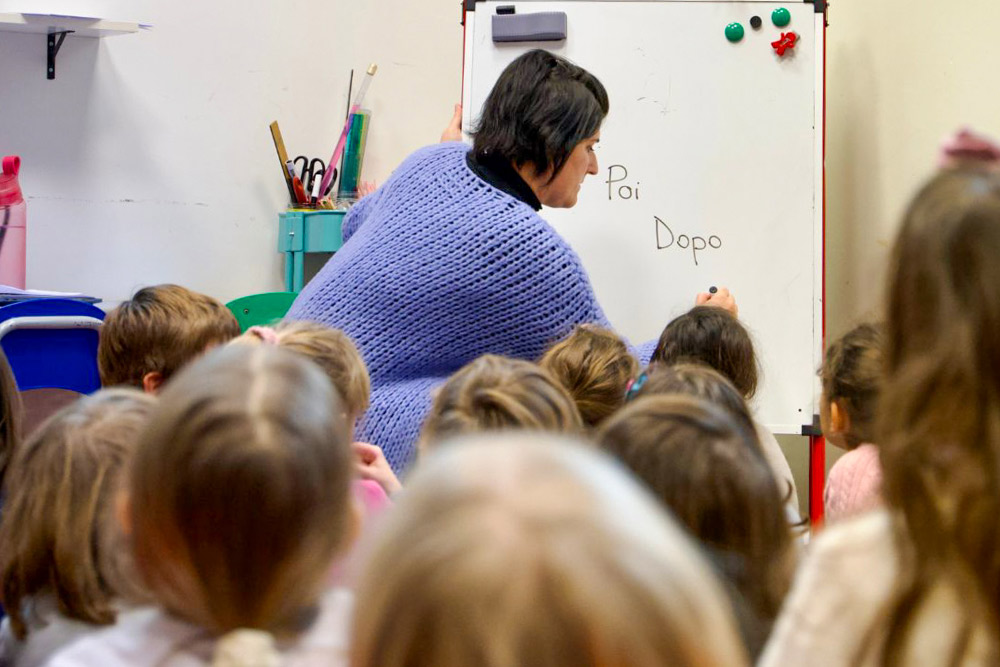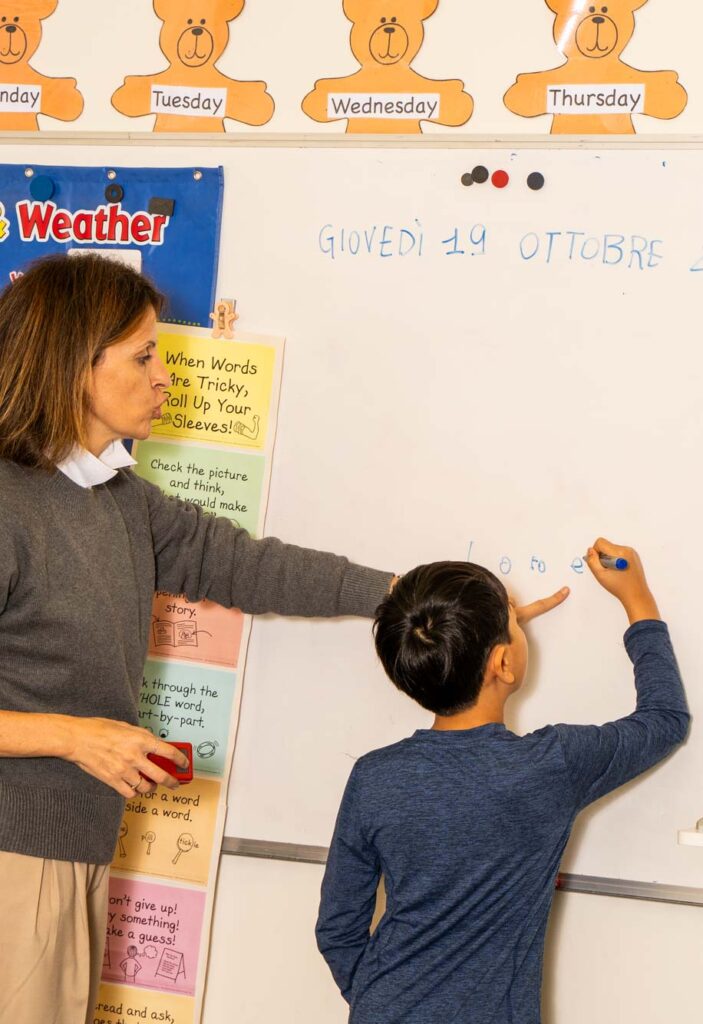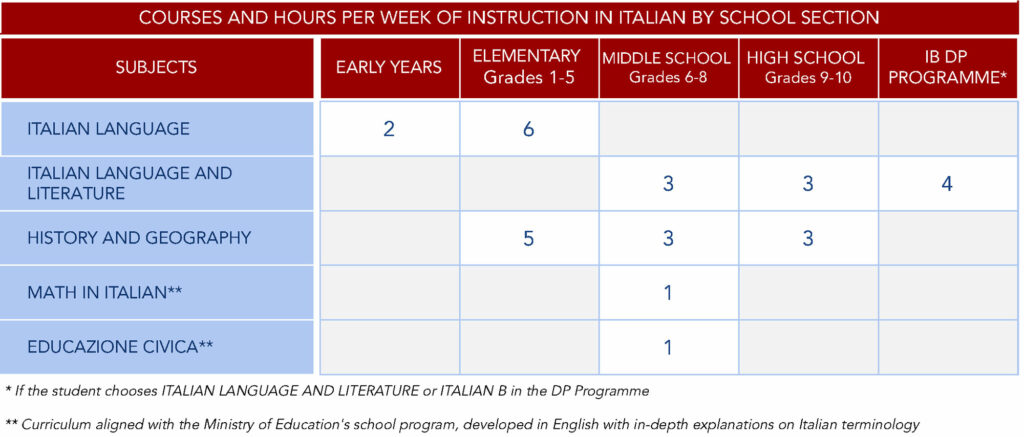Academics
Italian programme
For Italian and International students
The opportunity to benefit from a complete and differentiated Italian curriculum
Indeed, the Italian culture represents a fundamental resource for the academic preparation of students, both Italian and foreign. Taking advantage of the Italian human and cultural resources, the intent is to build a solid linguistic and cultural foundation, differentiating instructions and activities to meet the diverse needs of the Italian students (Italian A for native speakers) and to enrich the school experience for foreign students (Italian B as language acquisition).
A differentiated approach in learning offers the possibility to Italian mother-tongue students to follow a curriculum which meets the Guidelines set by the Italian Ministry of Education and to international students to learn the language of the host country.
In 2023, ISG received official recognition from the Italian Ministry of Education, beginning with the first grade of primary school.
This achievement brings us immense satisfaction and pride. While respecting the international dimensions of our school, it also adds an important emphasis on Italian culture and language learning.
THE ITALIAN LANGUAGE: A CULTURAL ENRICHMENT FOR BOTH ITALIAN AND INTERNATIONAL STUDENTS
riconoscimento parita' scolastica dall'anno accademico 2023-2024
Un importante riconoscimento per la valorizzazione della cultura italiana in un contesto multiculturale

The value of the Italian culture in the ISG curriculum

Promoting the local language has a positive effect on a student's global language skills
GLOBAL CITIZEN
THE IB APPROACH
The integration of the local culture and language within the IB program is crucial since it enriches students’ educational experience, connects them to their roots, and prepares them to become knowledgeable, respectful, and multilingual global citizens.
WHY STUDYING THE ITALIAN LANGUAGE
Local culture is an intrinsic part of students’ identity. Learning about their own culture and language helps students develop a strong connection to their roots, increasing their sense of belonging and cultural identity.
The local language is often the primary media through which people communicate in their community. Solid skills in the local language enables students to communicate effectively with family, friends, and community members, creating stronger relationships.
Understanding the local culture and language fosters a sense of social inclusion. Students who understand and respect the local culture are more likely to actively participate in the community and accept the cultural differences of others.
Involving local culture and language in the school curriculum creates a bridge between the school and students’ families. Families often feel more involved and actively support their children’s learning when they see their culture recognized and respected.
Italian language and Italian literature for native and native-like speakers
ITALIAN A
PRIMARY SCHOOL
(Ages 2-10)
THE ENHANCEMENT OF THE ITALIAN LANGUAGE PROGRAMME IN ELEMENTARY SCHOOL
In 2022 the school boosted the Italian Program for all elementary students.
Students are now offered six hours of Italian per week, as many hours as the Italian school offers in the 30-hour weekly program. The boosting of the program is designed to put a special focus on writing and reading, essential skills to fully participate in the learning environment and for the future success of our students.
We believe that this emphasis on Italian will contribute significantly to students’ integral education and their ability to communicate, think critically, and fully appreciate the local culture. Moreover, this initiative aligns perfectly with our mission which is to provide a comprehensive education, promoting the balanced development of students in all aspects of their lives.
SECONDARY SCHOOL
(Ages 11-17)
THE PREPARATION FOR THE TERZA MEDIA EXAM
In Middle school, the curriculum follows ministerial requirements and aims to prepare students who attend the Italian A class to pass the eighth grade state exam. In each of the three middle school classes, pupils will take an Italian language course (reading, writing, grammar and literature) of 3 hours per week. The course is supplemented by one hour per week of history and geography, one hour of mathematics in Italian. The MYP curriculum in history and one hour of technical education in Italian.
From the Academic Year 2024-25, ISG will be offering one hour of afterschool Terza Media preparation for Grade 6 and 7 students, in addition to the current Terza Media preparation offered currently to Grade 8.
In High school, the language development continues with an Italian literature and language course of 3 hours per week.
In the Grade 11 and Grade 12, Italian Literature is among the courses offered in the IB Diploma Program.

